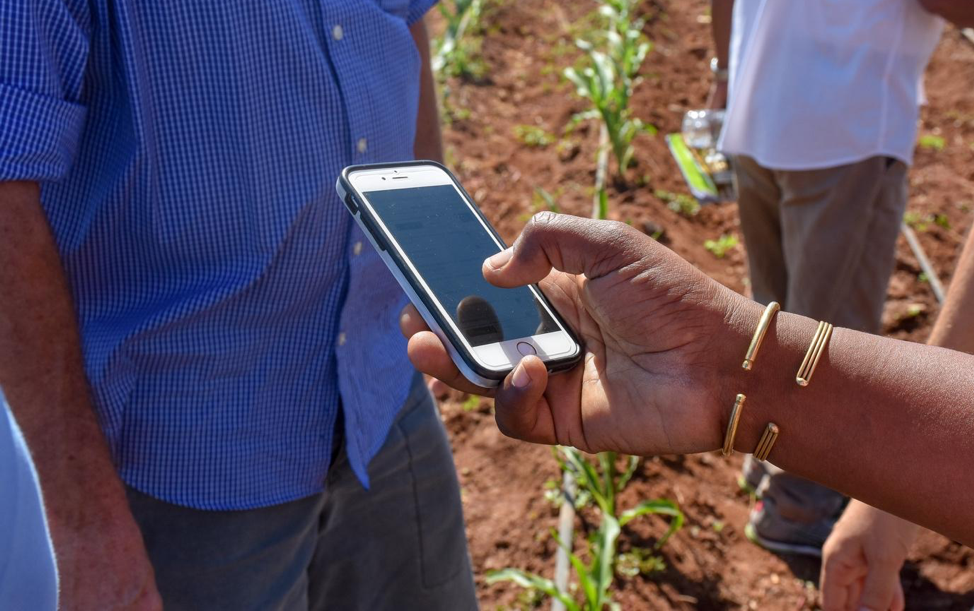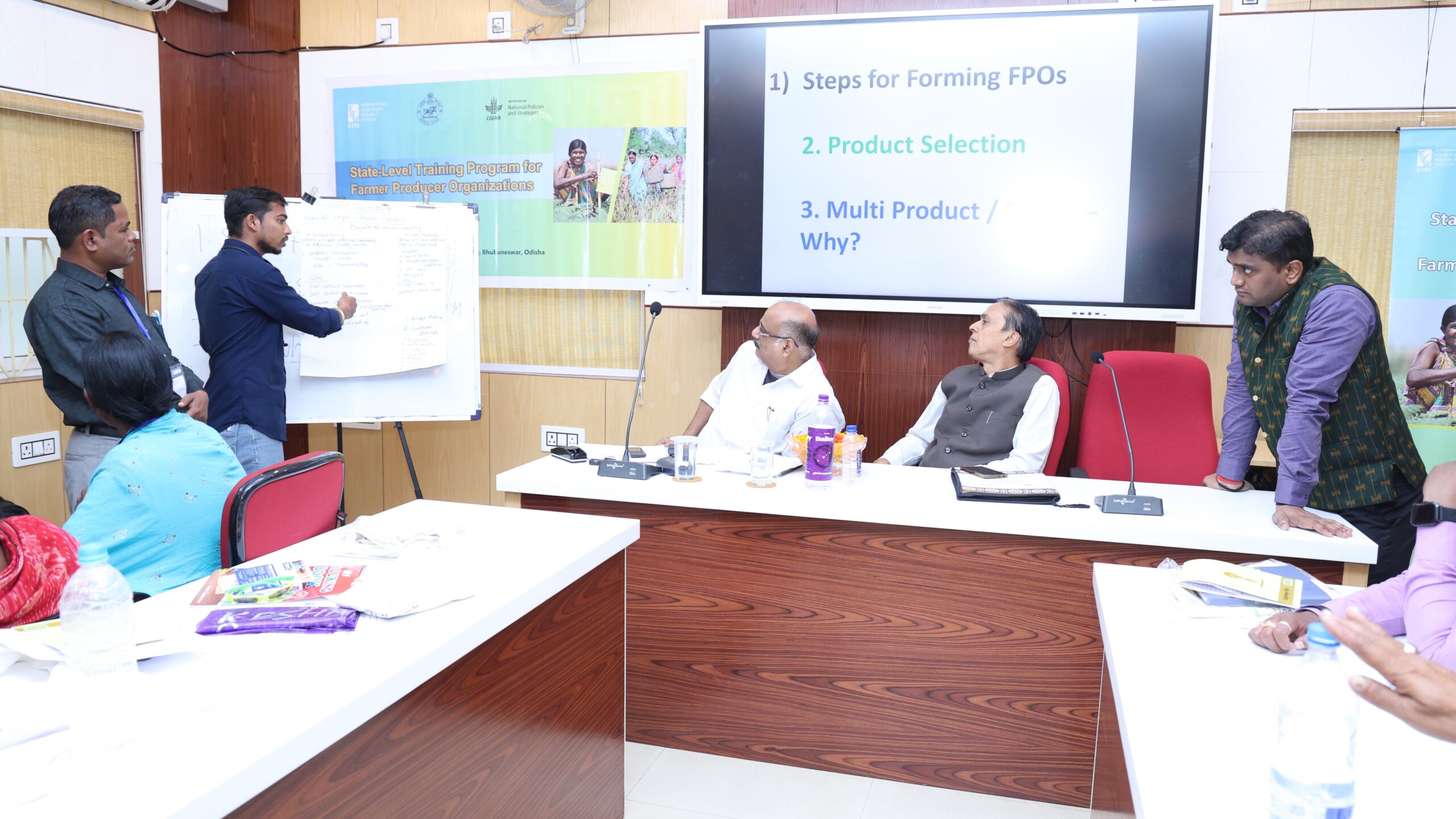As climate change-driven droughts, storms, and floods continue to challenge smallholder farmers, the demand for agricultural risk management solutions is increasing. But insurance for severe weather events, pests, and diseases is not always available or affordable for smallholders.
In areas where these services are available, access and effectiveness are limited due to high monitoring and verification costs, and by imperfect correlations between actual losses and insurance payouts. In addition, if not carefully designed, insurance products may become a substitute for resilience-enhancing technologies that would alleviate the potential risks.
The winners of last year’s CGIAR Big Data in Agriculture Inspire Challenge scale-up project, Seeing is Believing, have taken huge strides towards making big data, crop advisory services, and insurance work for smallholder farmers with their picture-based insurance approach.
The Inspire Challenge is a competition to encourage innovative big data approaches to advance agricultural research and development across the sector. The Seeing is Believing team first received the Inspire Challenge grant in 2017 and then an additional $250,000 grant in 2018 to scale up their project.
The Seeing is Believing concept was initially developed by IFPRI researchers and HDFC Ergo General Insurance, an Indian insurance provider, with support from the CGIAR Research Programs on Policies, Institutions and Markets (PIM) and Climate Change, Agriculture and Food Security (CCAFS); the International Initiative for Impact Evaluation (3ie) and the UK Natural Environmental Research Council (NERC). The team developed an app, WheatCam, which uses smartphone cameras to monitor crop health using an “eyes on the ground” approach.
“The 2017 Inspire Challenge allowed us to team up with CABI [the Centre for Agriculture and Bioscience International] to test whether the provision of advisories around risk management—both weather risk and also pests/diseases—can help insurance providers by improving farmers’ resilience from these risks,” said Berber Kramer, IFPRI’s lead researcher on the project.
Using the app, farmers photograph an insured plot from the same angle multiple times a week. Their geotagged, time-stamped images are uploaded through the app to be analyzed.
The analysis takes into consideration visual cues such as crop greenness to diagnose crop health.
“These new technologies allow us to move from weather index-based insurance to insurance products based on remote sensing of smartphone pictures, which improve the correlation between insurance payouts and the damage that farmers experience on the ground,” Kramer said.
This, however, comes with a caveat.
“We are moving from an approach in which payouts don’t depend on farmer efforts to mitigate risk, to a system in which payouts depend on whether farmers invest themselves in risk prevention. This needs to be considered in the design of such insurance products,” Kramer said.
Along with the images, regional pest monitoring and weather data are thus used to create a personalized, real-time advisory service for the insured plot. This gives farmers the opportunity to mitigate the risks and make changes to improve their crop health—potentially reducing the number of insurance payouts.
“Insurance payouts are then linked to management practices, and if insurance providers can promote the adoption of risk preventive measures, they could potentially reduce the insurance premiums,” Kramer said.
Results from initial trials in India found that the advisory service became more effective when bundled with insurance services—farmers’ engagement increased when the advisory was associated with their insurance policy, and farmers’ willingness to pay for the bundled advisory-insurance package was higher than when the two services were offered separately. These synergies between insurance and advisory services could encourage farmers to adopt more climate-smart resilience technologies.
In 2019, with the support of the Inspire Challenge, the project will scale up its efforts. Part of this plan will be to introduce an automatic analysis service to process data on a larger scale. Also, in the state of Tamil Nadu, the project plans to engage existing services such as Plant Doctors and Plant Clinics set up by CABI to make integrated pest management services more comprehensive.
There is also the potential to integrate picture-based insurance and advisory services into credit, providing information about farmers’ creditworthiness and reducing the risk of default; and into the national crop insurance scheme, to improve farmer engagement and encourage the adoption of recommended practices, which could help farmers manage risk and lower expected insurance payouts. These changes may also help to reduce insurance premiums.
Seeing is Believing hopes to tackle important development objectives, such as the ability of farmers to mitigate risk from climate change and improve their household food security.
With the Inspire Challenge Scale-Up grant, the project can facilitate these aspirations and work with insurance providers to see through farmers’ eyes.
Marianne McDade is Communications Coordinator for the CGIAR Platform for Big Data in Agriculture, based in Cali, Colombia. This post first appeared on the PBDA blog.
Over the next eight weeks, the CGIAR Platform for Big Data and Agriculture will be featuring each of the winners from the 2018 Inspire Challenge. Follow them on Facebook, LinkedIn, Instagram and Twitter to keep up to date. Join the conversation by using #InspireChallenge.







